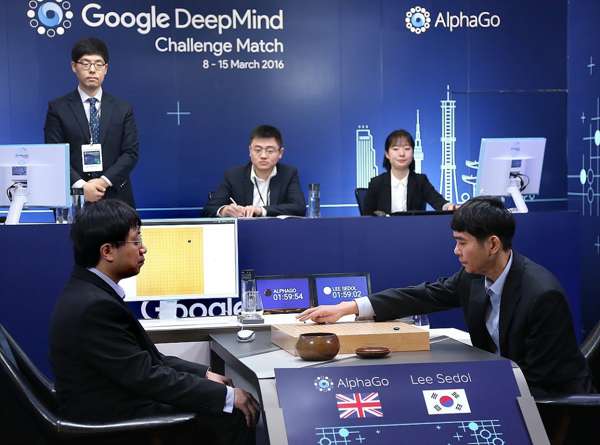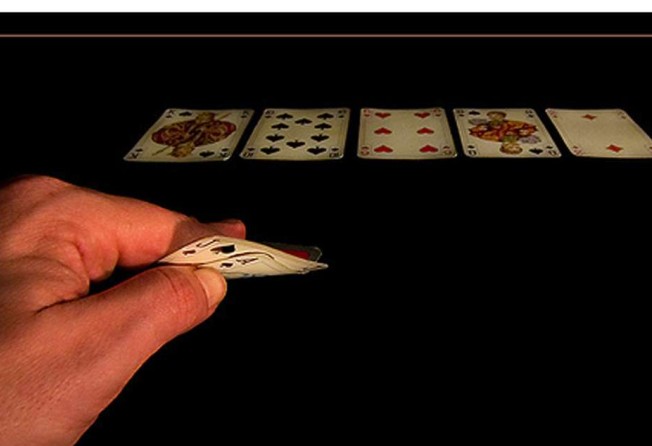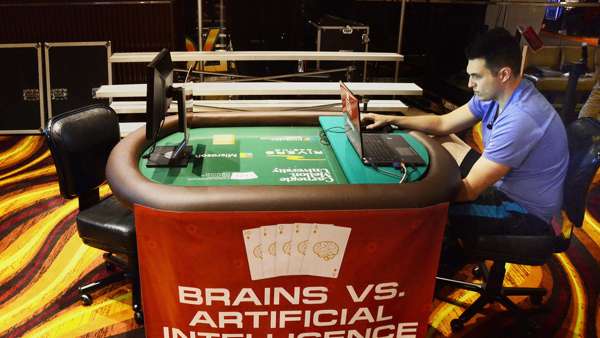
AI bot and humans in Texas Hold‘Em showdown in Hainan
An artificial intelligence programme called Libratus will play 36,000 hands of Texas Hold’Em poker over five days against a six-strong human team for 2 million yuan in prize money.

Artificial intelligence is poised to take on humans in the game of Texas Hold’Em poker, after having aced people in the games of chess and go, as technology companies race to set the next milestone in the epic contest between machines and humanity.
A computer programme called Libratus, developed by the Carnegie Mellon University, will challenge a six-strong team of China’s top poker players in 36,000 hands of the game over five days in Hainan. The winner of the contest, starting on Thursday, will walk away with bragging rights and 2 million yuan (US$290,000) in prize money.
Lee Kai-fu, the former Greater China president of Google Inc and founder of the venture capital firm Sinovation Ventures, gives humans at most a 10 per cent chance of beating Libratus.
“Even if the human team is lucky enough to win this time, the computer will still be able to beat all human players within a year because machines can keep training themselves at a much faster speed to make progress and to succeed,” said Lee, whose Sinovation is one of the organisers of the showdown in Hainan.
What’s at stake is more than bragging rights. Artificial intelligence is now at the centre of a myriad of real world applications, from facial recognition software and cybersecurity to more futuristic technologies like autonomous self-driving vehicles.
Chinese technology companies have also been piling into artificial intelligence. Baidu Inc., operator of China’s dominant internet search engine, has 1,300 staff in its AI division. It entered its Xiaodu bot in a popular television game show in China called Super Brain, in which it won against human contestants.

Alibaba Group Holdings Ltd., owner of the South China Morning Post, has an AI programme that helps identify counterfeit products sold on the world’s largest online shopping platforms.
After IBM’s DeepBlue vanquished world chess grand champion Gary Kasparov in 1997, Google DeepMind’s AlphaGo programme set the next milestone with its 4-1 victory in March 2016 over Go master Lee Sedol.
The game of Go, popular in China, Japan and South Korea, is considered much harder for computers to win than chess, because it requires the programme to engage a deep learning method called artificial neural network to learn its moves.
Still, with chess and Go, the players can see the entire board. In poker, players don’t get to see each other’s hands. So Libratus is not only equipped with computing power, but also with an enhanced algorithmic approach to the game, particularly the way it deals with imperfect or hidden information.

“Despite a rare odds, we still have a chance to win,” said Du Yue, head of Team Dragon, which will be facing down Libratus. “Three in our team, including myself, majored in computer science in Tsinghua University. We have been discussing strategies in the past several days to prepare for the game.”
Du won the 2016 World Series of Poker, a major global tournament for the game.
The next milestone in AI may pave the way for solutions to replace humans in various jobs like driving, to financial analysis. This week, Hong Kong’s Yunfeng Financial Group, owned by Alibaba, is poised to launch a Robo-Advisor to help customer allocate their global assets.
Computer programmes like AlphaGo have demonstrated that they are capable of high intelligence quotient (IQ) in their victory over humans, but “it requires high emotional quotient (EQ) to beat humans in poker,” said Sinovation’s Lee.
The development of artificial intelligence has come to a tipping point, said Lee, who worked at Microsoft Corp and Apple inc before he headed Google’s Greater China business from 2005 to 2009.
“AI will beat humans in a lot of areas, as long as it is fed with massive amount of labelled data,” he said. “It’s time for AI experts to wave goodbye to universities and say hello to entrepreneurship. We can provide them with data and money if they want to set up their businesses.”